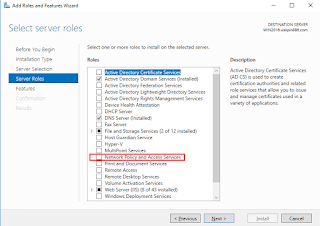Networking (LAG)
What is LAG?
- Provide both load-sharing and port redundancy across line cards. LAGs can be enabled as static or dynamic.
LAG addresses 2 problems, Bandwidth limitations and lack of resilience.
- Aggregation increase throughout
- redundancy provided in case one of the aggregated link fail
Dynamic > Static
- If one of the link failed between peers, one peer may not see the link as down and continue sending traffic down the link. (Static)
- can detect whether the device on the other end can handle link aggregation.
LACP Configuration (Dell Switches)
- Switch A (conf)# interface ten 0/34
- Switch A (conf-if-te-0/34)# no shutdown
- Switch A (conf-if-te-0/34)# port-channel-protocol lacp
- Switch A (conf-if-te-0/34-lacp)# port-channel 32 mode active
- Switch A (conf-if-te-0/34-lacp)# interface ten 0/43
- Switch A (conf-if-te-0/43)# no shutdown
- Switch A (conf-if-te-0/43)# port-channel-protocol lacp
- Switch A (conf-if-te-0/34)# port-channel 32 mode active
Checking,
Switch A (conf)# interface port-channel 32
Switch A (conf-if-po-32)# do show lacp 32
Port-Channel 32 admin up, open up, mode lacp
Actor System ID: xxxxxxxxxxxxxxxxxxxxxx
Partner System ID: xxxxxxxxxxxxxxxxxxxxxx
Actor Admin key 32, xxxxxxxxxxxxxxxx
LACP LAG is an aggregatable link
Port Te 0/34 is enabled, LACP is enable and mode is LACP
Port Te 4334 is enabled, LACP is enable and mode is LACP
- Provide both load-sharing and port redundancy across line cards. LAGs can be enabled as static or dynamic.
LAG addresses 2 problems, Bandwidth limitations and lack of resilience.
- Aggregation increase throughout
- redundancy provided in case one of the aggregated link fail
Dynamic > Static
- If one of the link failed between peers, one peer may not see the link as down and continue sending traffic down the link. (Static)
- can detect whether the device on the other end can handle link aggregation.
LACP Configuration (Dell Switches)
- Switch A (conf)# interface ten 0/34
- Switch A (conf-if-te-0/34)# no shutdown
- Switch A (conf-if-te-0/34)# port-channel-protocol lacp
- Switch A (conf-if-te-0/34-lacp)# port-channel 32 mode active
- Switch A (conf-if-te-0/34-lacp)# interface ten 0/43
- Switch A (conf-if-te-0/43)# no shutdown
- Switch A (conf-if-te-0/43)# port-channel-protocol lacp
- Switch A (conf-if-te-0/34)# port-channel 32 mode active
Checking,
Switch A (conf)# interface port-channel 32
Switch A (conf-if-po-32)# do show lacp 32
Port-Channel 32 admin up, open up, mode lacp
Actor System ID: xxxxxxxxxxxxxxxxxxxxxx
Partner System ID: xxxxxxxxxxxxxxxxxxxxxx
Actor Admin key 32, xxxxxxxxxxxxxxxx
LACP LAG is an aggregatable link
Port Te 0/34 is enabled, LACP is enable and mode is LACP
Port Te 4334 is enabled, LACP is enable and mode is LACP


Comments
Post a Comment